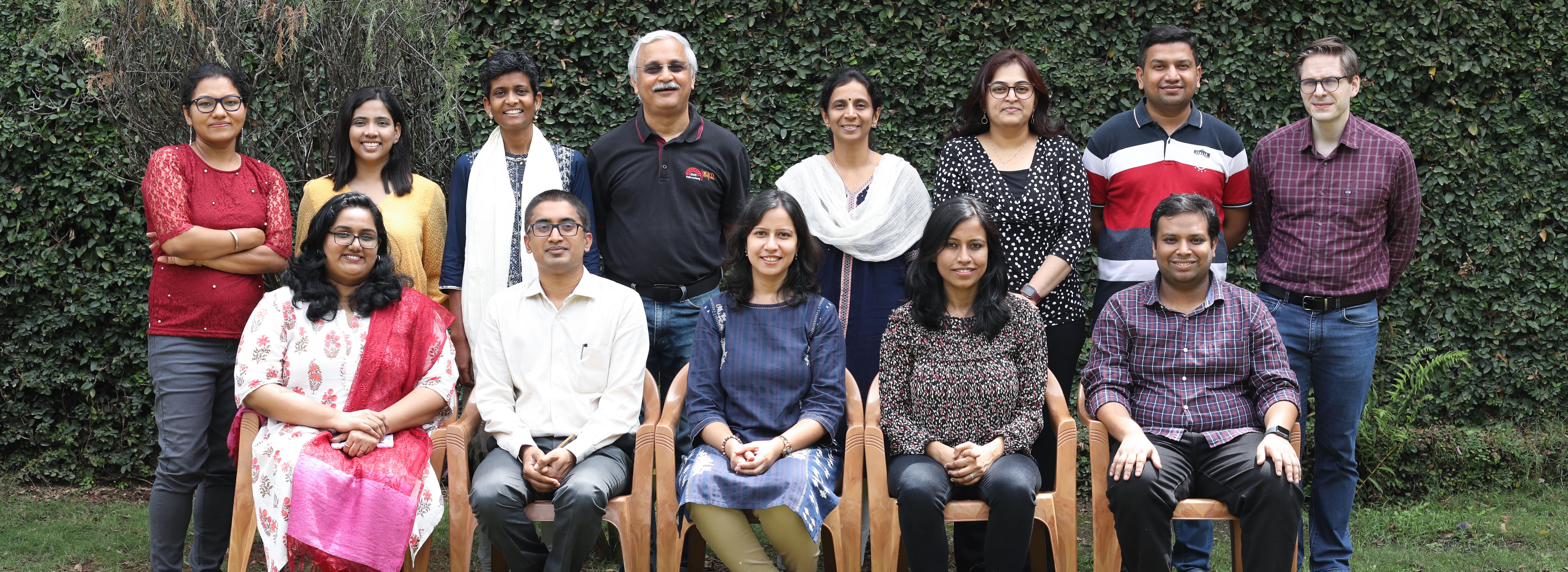Entrepreneurship
The Doctoral Programme in Entrepreneurship covers research that spans a wide range of theoretical perspectives in entrepreneurship, research methods and tools, and specific topics covering different contexts in which the entrepreneurship phenomenon is observed and practiced. The coursework includes courses from allied disciplines like economics, strategy and organizational theory. Faculty members have the expertise and competence to guide research in areas such as: entrepreneurial cognition, entrepreneurial opportunities, entrepreneurship theory, high growth entrepreneurship, entrepreneurial networks, entrepreneurial ecosystems, and international entrepreneurship. The area also works closely with NSRCEL, which is a leading incubator in the country, to explore practice-relevant research questions as well as translate research into practice.
Research Overview
From addressing micro questions such as how entrepreneurs identify opportunities to exploring macro questions such as ecosystem development, the multi-disciplinary research approach adopted by the Entrepreneurship area covers it all, says Chairperson Prof. Dalhia Mani.
Research Spotlight
Entrepreneurial success often hinges on agility; the ability to iterate rapidly, have flexible resources and rely on emergent strategies. But what if a venture operates in an industry where pivoting is slow, costly, or uncertain?
Doctoral student Charu Rastogi, Entrepreneurship area, studies pioneering ventures in the life sciences and biotech industry in India operating at the frontier, where markets, technologies, and regulatory pathways are uncharted.
Pivoting can significantly impact a venture’s performance. It shows that founders can be agile in the face of adversity. But why do new businesses pivot? To empirically demonstrate whether or not pivoting results in improved performance, Sukhanya Roy also investigates whether or not ventures that pivot perform better than those that do not.
PhD scholar Aman Bhuwania points out that research on funding and VC funded firms has dominated Entrepreneurship research. But, given that only 27% of IPOs are VC funded, where do others get their “funding” from? Can ventures scale without capital?
Ongoing Research
|
Student |
Dissertation Title |
|
Manjunath A N |
Entrepreneurial Agency and Reginal Transformation: Old Mysore State (1881 – 1956) |
|
Aman Bhuwania |
Learning in Accelerated Ventures: The Role of Penrosean Resources |
| Sneetha Saji | Her Story of Becoming – Unravelling the Identity Work of Women Entrepreneurs |
| Student | Dissertation Title |
| Bidisha Bhattacharjee | Essays on coordination in startups |
| Charu Rastogi | Essays on Pioneering Entrepreneurs |
| Sukanya Roy | Essays on Entrpreneurial Pivoting |
| No. | Course Name |
| 1 | Strategy Classics |
| 2 | Entrepreneurship Classics: Entrepreneurship in the History of Ideas |
| 3 | Contemporary Entrepreneurship - 1 |
| 4 | Contemporary Entrepreneurship - 2 |
| 5 | Econometrics I |
| 6 | Econometrics II |
| 7 | Qualitative research methods |
| 8 | Strategy content (A) |
| 9 | Organizational Theory |
To learn more about faculty in the area click here
Click here for brochure

